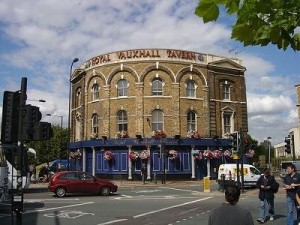“The thing I truly object to,” Kitty said, “and I know this sounds trivial and I don’t care if it sounds a bit snobbish, but I don’t care about these awful people [the missing girl’s family] and I do care …that the whole world now thinks of Hanmouth as being this sort of awful council estate and nothing else.”
Author Philip Hensher is nothing if not controversial, and a quick look at the ratings for his novels on Amazon in the UK will show the typical love-him-or-hate-him distribution of star ratings for his books. Though Hensher was named in 2003 as one of Granta’s Twenty Best British Novelists, and  his previous novel, The Northern Clemency (2008) was nominated for the Man Booker Prize, many readers have never forgiven him for what may be one of the most infamously nasty book reviews ever written. A writer for the Guardian and the Independent in the UK, Hensher reviewed The Book of Kings by debut author James Thackara in 2000, a book on which Thackara had reportedly worked for twenty-five years. After praising the quality of the paper in the book and the readable typeface and the photo of the author, which Hensher notes was in focus, he then goes on to say “it’s terrible, startlingly badly written…so awful, it’s not even funny, and with nothing but falsity and a useless sincerity.” And he doesn’t stop there, saying ultimately that “It may be the very worst novel I have ever read.”
his previous novel, The Northern Clemency (2008) was nominated for the Man Booker Prize, many readers have never forgiven him for what may be one of the most infamously nasty book reviews ever written. A writer for the Guardian and the Independent in the UK, Hensher reviewed The Book of Kings by debut author James Thackara in 2000, a book on which Thackara had reportedly worked for twenty-five years. After praising the quality of the paper in the book and the readable typeface and the photo of the author, which Hensher notes was in focus, he then goes on to say “it’s terrible, startlingly badly written…so awful, it’s not even funny, and with nothing but falsity and a useless sincerity.” And he doesn’t stop there, saying ultimately that “It may be the very worst novel I have ever read.”
The fact that a search for Hensher on Google immediately turns up this review, even after eleven and a half years, shows the passion with which people have responded to it—and to him–often negatively. His newest book, King of the Badgers, published earlier in the UK than in the US, has also created controversy: In one scene near the end of the book, a professor is angered because police were allowed to interrupt her class to arrest a Middle Eastern student in front of a hundred other students, with, apparently, the approval of the administration. Since a similar event happened at Exeter University, where Hensher teaches, some angry faculty at Exeter have said in The Observer (April 17, 2011) that as a result of this and other negative opinions he expresses about his “‘fictional” university, his novel has “gone down like a sack of worms” at Exeter.

Having never read a Hensher novel before, and “knowing” only what I had read about him, I approached this novel with some sense of uncertainty, hoping that the brilliance of the author’s work would nullify the opprobrium directed toward him by his resentful critics. I need not have worried. This book, though not without its excesses, is a significant and utterly compelling work of social criticism, a classic example of the best social satire.
The novel opens with the disappearance of China O’Connor, a child of about ten who vanishes while on an errand after school. She lives in the council estate with her mother, a 27-year-old hairdresser, her three siblings, and Micky, China’s “third stepfather,” age twenty. The disappearance shocks the community of Hanmouth, where the “elite” have never before had to deal with the expansion of the town limits to include people like the O’Connors – not “their kind,” with all their attendant problems. Many even resent the time and effort the town has expended to find China, and most feel that the quick arrest of her mother is appropriate, since it is obvious to them that China could not have disappeared without help. The Hanmouth book club holds its book discussion of a Japanese novel as scheduled, and the rest of the community goes about their lives, which have been little changed by events – except, of course, by the influx of reporters and the unwashed public. The Neighborhood Watch, which has been putting cameras on streets throughout the village, continues that project, increasing the number of cameras in the areas where long-time residents live.
 Divided into three parts, the first part concerns the search for China O’Connor, though most of the text is devoted to the development of the characters in the town and their interrelationships. The disappearance becomes secondary to the development of atmosphere, the local characters (often depicted satirically), and the social snobbery. Part II has virtually nothing to do with the disappearance. In a sensitive and often moving character study, the book focuses on David, the thirty-six-year-old gay son of Cath Butterworth and her husband Alec. David is fat and lonely, and all he wants is someone to love him. His parents, relative newcomers to Hanmouth, are no longer as much a part of his life as they have been, and his loneliness has peaked. He enlists Mauro, an opportunistic but “suitable” gay man to pretend to be his boyfriend when he visits his parents. (This section includes a gay orgy which stretches the boundaries between realism and pornography.) Part III moves to academia, among other settings, and the issues facing Miranda, a member of the faculty from Hanmouth, but the author also brings continuing threads up to date–the increase of cameras as part of Neighborhood Watch, the continuing intrusion of government on privacy, the deaths of several people the reader has come to know, and the outcome of China’s disappearance.
Divided into three parts, the first part concerns the search for China O’Connor, though most of the text is devoted to the development of the characters in the town and their interrelationships. The disappearance becomes secondary to the development of atmosphere, the local characters (often depicted satirically), and the social snobbery. Part II has virtually nothing to do with the disappearance. In a sensitive and often moving character study, the book focuses on David, the thirty-six-year-old gay son of Cath Butterworth and her husband Alec. David is fat and lonely, and all he wants is someone to love him. His parents, relative newcomers to Hanmouth, are no longer as much a part of his life as they have been, and his loneliness has peaked. He enlists Mauro, an opportunistic but “suitable” gay man to pretend to be his boyfriend when he visits his parents. (This section includes a gay orgy which stretches the boundaries between realism and pornography.) Part III moves to academia, among other settings, and the issues facing Miranda, a member of the faculty from Hanmouth, but the author also brings continuing threads up to date–the increase of cameras as part of Neighborhood Watch, the continuing intrusion of government on privacy, the deaths of several people the reader has come to know, and the outcome of China’s disappearance.

Hensher is a master of dialogue, with his characters often talking at cross purposes, talking with the kind of abbreviated dialogue spoken by intimate friends or partners, and talking over the heads of people with whom they are dealing. Description is vivid and memorable. In describing Micky, the “stepfather” of the missing China, Hensher says, “His bun-like face was not made bewildered by grief or fear. That was what he looked like.” David was described as “clinging to his mother’s girdle-straps,” and Mr. Calvin’s wife as looking like “a prize turnip…some great white root vegetable.” Ironies combine with satire to create constant surprises, and though the author sometimes gets carried away with his own interests and forgets the novel’s need for unity, the book does create a vibrant and unforgettable portrait of lives in a small town in Devon where the have-nots are simply not recognized as part of the town’s social structure.
 The book is hard to put down, and as the characters develop into real people, they exert their own charms on the reader, however uncharming they might be in personality. The threats to personal liberty and privacy have never seemed so imminent, and as the Neighborhood Watch cameras become ubiquitous, the reader cannot help but picture the ironic excesses of a Brave New World come to Devon. Ultimately, I became a great admirer of Hencher’s immense talents, despite his tendency to shoot himself in both feet.
The book is hard to put down, and as the characters develop into real people, they exert their own charms on the reader, however uncharming they might be in personality. The threats to personal liberty and privacy have never seemed so imminent, and as the Neighborhood Watch cameras become ubiquitous, the reader cannot help but picture the ironic excesses of a Brave New World come to Devon. Ultimately, I became a great admirer of Hencher’s immense talents, despite his tendency to shoot himself in both feet.
Photos, in order: The author’s photo is from http://thebookshow.skyarts.co.uk, a site which also has a video interview with the author.
Near the beginning of the book, one character catches the train just as a gunman opens fire on the passengers waiting at Paddington Station, pictured here. This thread is never developed as one would expect it to be. The iconic Paddington statue is from http://www.travelpod.com
Following the orgy in Part II, the characters travel to Vauxhall in London to continue their party. http://www.trivago.com
The theft of a small pheasant jewel box leads to an awakening by one of the characters at the party. http://www.replacements.com
